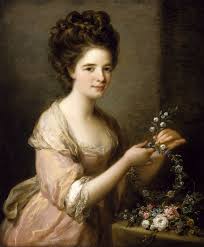I’d imagine they fake an American accent. Maybe Burbank, CA?
What makes you think there are Renaissance festivals in the UK?
They just call them festivals and dress nicer.
There’s indeed renaissance festivals in UK.
I’m pretty sure they pretend to speak old English there.
Why wouldn’t they?
Because we have a lot of history. If we’re doing an historic festival it would be more specific about the period, not just some homogeneous “past”. But that said, such festivals are quite rare anyway
The Renaissance is not “some homogeneous past”, it’s a pretty specific time period: the 15th and 16th centuries.
Yes, but renaissance fairs in the US are not actually about the renaissance. They are pretty much just “vague Ye olden days”/fantasy fairs.
Thats two hundred years and would cover the end of Plantagenet reign and the Tudor era.
Henry VIII reign happened during that period, at the beginning of your time period everyone would be catholic and at the end Queen Mary of Scotts was executed because the idea of a Catholic on the throne was unthinkable.
The UK is littered with castles and estates, normally they focus on specific historic events which happened at that location.
With so many cultural and historical inaccuracies I did essentially is not a representation of any time period.
A “specific” span of 200 years?
Renaissance fairs are an American thing. They don’t exist in the UK.
You say that very confidently and are pretty well upvoted but I found several in a quick search:
https://jorvikvikingfestival.co.uk/ https://tewkesburymedievalfestival.org/ https://fantasyforest.co.uk/ http://www.renaissancefaire.co.uk/
You can find any number of re-enactment events/groups across the UK from Romans to Vikings to the Sealed Knot to WW2. For most of those Medieval festivals, especially the ones celebrating an event or place (second and fourth links - the first and fourth aren’t relevant to this), it tends to be a more touristy event rather than one visitors would get dressed up and involved in (until recently with the US influence).
Summer Court Renaissance Fair claims to be one of the first US-style ren fairs:
On the 6th of August 2022, we hosted one of the first American-style ren faires to make it to the UK!
Definitely this, until apparently the one you’ve just linked, they didn’t exist in the American sense here. The closest you would get here before was out of work actors adding a bit of flavour to some otherwise-a-bit-dull landmarks or historically important places. And even then that wasn’t super common.
I always saw the American style as basically a medieval themed Butlins experience. Pure entertainment rather than something ostensibly intended to be educational.
That’s it, the earlier ones were awfully dull and worthy and the Ren Fair influence has made it more fun, with visitors now encouraged to dress up and get involved. I wasn’t joking when I described them as Medieval cosplay.
It’s a bit like how British comic conventions became Comic Cons - back in the day they were a few drafty halls in some relic of the Industrial Revolution or musty spaces in run-down hotels. Now they are Nerdvana, colliding with the old memorabilia shows of yesteryear where you could get a handful of old Doctors to sign something for a few quid and now have to throw a nought on the end of that. If you are lucky you’ll still find some actual comics tucked away in a side room where they won’t embarrass the starts of that sci-fi show that was slightly popular for a couple of years in the mid-80s.
Is this ‘renaissance fair’ branding is a new thing? I did a few historical/fantasy weekend larps when I was younger but they were never called ‘renaissance fairs’.
Renaissance Faires are a more casual event versus LARPs. It’s usually for families. Some people do dress up but it’s not expected. Usually you just go for a few hours, watch a joust, do some shopping, and eat a turkey leg.
Don’t forget the Scotch egg!
In Minnesota US they’ve been around since September 11, 1971
I think larps are slightly different I would say https://loxwoodjoust.co.uk/immersive-festival/ where the visitors see the reenactors, and while some cosplay, the renenactment is a performance by a cast.
Where as LARP (e.g. Empire) is all the “visitors” are in the cast
I’ve never heard of a renaissance fair over here. And one of the examples you give, jorvik viking festival, is surely set several centurias before the renaissance.
All Renaissance fairs are really medieval fairs.
They ended up called Renaissance Fairs because a radio ad exec in California thought it was a more broadly appealing name when the first one was held, and it stuck.
I’ve wondered about the name for a while, thanks for explaining!
They might exist, but they aren’t widely known about like they are in the USA
“Rwy’n hoffi chi. Dych chi eisiau mynd i’r caffi gyda mi am baned o goffi?”
=
“I like you. Do you want to go to the café with me to have a cup of coffee?”
I’m still learning Welsh, so this might contain mistakes, but it’s better than saying you don’t understand her… For future reference, you know.
Edit: Meant to reply to the comment below me.
They are super niche here. The vast majority of people will never have heard of them except in American TV.
You call a fantasy event a renaissance festival?
Arguable but the last time I was at the RenFest in Larkspur, there were Jedi and Star Fleet officers there.
That’s the big difference between the US ren faires and the European ones.
The ones over here are usually organized by castle museums or therelike, so in general, they are quite grounded in reality.
You might have a herb witch or something like that over here, but you won’t have dragons, magic or Disney present there.
Today I learned, people who lived in the medieval ages were big fans of Star Wars and Star Trek.
deleted by creator
https://loxwoodjoust.co.uk/immersive-festival/ I think is closest to American ren faire.
I watched a catapult fire projectiles into a castle moat outside of Cardiff at a medieval fair. Also got propositioned by a Welsh girl, but couldn’t understand what she was saying.
- Yakkie-dah = hello; good morning/day; yes; correct; goodbye
- Boy-o = boy
- Ma-fan-way = girl
- Cmyru-way = motorway
- Cmyru-shypi = shop
- Cmyru-foni = phone
- Cymru-nana = banana
- Llllllgoogllgoogll-y-cymrnllllll = the/a/I/you/we/us/him/her/them/up/down/this/that/those
Now you can speak Welsh. Well done or, should I say, Yakkie-Cymru.
- Hello = Shwmae / S’mae
- Good morning - Bore da
- Day - Dydd
- Yes - ydw, ydy (and other words, it’s a bit complicated)
- Correct - iawn
- Goodbye - hwyl
- Boy = Bachgen / Hogyn (South Wales / North Wales)
- Girl = Merch / Hogan (South Wales / North Wales)
- Motorway - Traffordd
- Shop - Siop
- Phone - Ffôn, mobile phone - ffôn symudol
- Banana - Banana
- The - y, yr
- A - (no article)
- You - chi / ti
- We - ni
- Us - ni
- Him - o
- Her - hi
- Them - nhw
- Up - i’r lan
- Down - i lawr
- This - hon / hwn / hyn
- that - hyna
- those - hwnnw
I can’t be arsed to write the pronunciation in IPA. Just go on Google Translate to hear how it’s pronounced or learn Welsh on Duolingo.
Da iawn, rwyt ti’n gallu siarad / ysgrifennu Cymraeg nawr / rŵan! :)
Renaissance fairs are an American thing. They don’t exist in the UK.
I don’t know the UK, so I might be wrong, but it’s not an US only thing (beside the naming).
I’ve seen various form of medieval markets/festivals on several continental Europe countries, and I don’t see why it wouldn’t cross the channel. Even though, Historical re-enactment is a niche hobby, it’s not that uncommon to find group focused on the a given historical period caring a lot about the details, no matter if they re-enact the Viking, The crusade, or Napoleon’s army (If you visit Belgium during the Waterloo battle anniversary, you can see these groups re-enacting the battle). LARP is also a thing in the whole western Europe, it’s way less realistic as we do have elves and orcs, the biggest worldwide runs in Germany Trailer and UK has also some big ones and a lot of smaller ones.
So I’m sorry to disagree with your claim
They exist here in Australia too. Which is a Commonwealth country with lots of English influenced heritage and culture.
I’ve never heard of anything like this in Australia, and I live next to a castle lol
While not a renaissance fair exactly, there is a jousting tournament in Leeds Castle in Kent once or twice a year. It’s a lot of fun with armour, swords, horses, the whole shebang.
Pity. It isn’t even my thing but the few I have been to I have enjoyed. Kinda cool seeing how glass and metal tools were made back in the day.
Why would they speak French or Italian? The Rennaisance happened in Britain too and they spoke ye olde English back then.
Word on the street is that American English is actually closer to the English spoken by the British when they first landed and colonized the Americas. After the war they went back to their lil island and forgot how to pronounce their Rs.
Americans repeatingly say this in the vague hope that if they say it enough times it will rewrite history and become true. There’s absolutely no evidence that that is the case.
Realistically when you think about it it makes no sense, why would American English be closer to old English than British English? By the time of the colonisation no one spoke old English anymore anyway, so American English is no more likely to be like it than British English. Even if it was why would the current American form not have changed, if apparently the British form has changed?
Realistically when you think about it it makes no sense, why would American English be closer to old English than British English?
Standardization of RP only ocurred in the last 200 years.
Although a form of Standard English had been established in the City of London by the end of the 15th century, it did not begin to resemble RP until the late 19th century.
https://en.wikipedia.org/wiki/Received_Pronunciation
As for the “why,” though, one big factor in the divergence of the accents is rhotacism. The General American accent is rhotic and speakers pronounce the r in words such as hard. The BBC-type British accent is non-rhotic, and speakers don’t pronounce the r, leaving hard sounding more like hahd. Before and during the American Revolution, English people, both in England and in the colonies, mostly spoke with a rhotic accent.
Around the turn of the 18th to 19th century, not long after the Revolution, non-rhotic speech took off in southern England, especially among the upper and upper-middle classes. It was a signifier of class and status. This posh accent was standardized as Received Pronunciation and taught widely by pronunciation tutors to people who wanted to learn to speak fashionably. Because the Received Pronunciation accent was regionally “neutral” and easy to understand, it spread across England and the empire through the armed forces, the civil service, and, later, the BBC.
https://www.mentalfloss.com/article/29761/when-did-americans-lose-their-british-accents
Yo you should read this article by the Boston Broadcasting Company. Kinda disagrees with ya.
https://www.bbc.com/culture/article/20180207-how-americans-preserved-british-english
No evidence? Are you sure?
https://www.bbc.com/travel/article/20190623-the-us-island-that-speaks-elizabethan-english
You would think the BBC, of all outlets, would agree with you if you were right.
The study was from a college student in Canada. I’d wait to hear from peer reviews before taking one side or the other. Her findings were that Americans pronounce some words more closely to 17th century England vs. Common day England due to a movement to change the accent around that time.
Key being some words
Both have evolved, so it’s unsurprising that if you pick and choose your words American English is more similar to 17c English
Iirc though the most similar are west country and a few accents from the southern states in the US, but they’ve evolved a lot too so they’re not most similar in every way
It’s not unheard of, Icelandic is much closer to Old Norse than Norwegian is.
There are many reasons why this could be the case: pure chance, less outside influence of other languages, a smaller group of people, …
Not all of these apply to the US and I have no idea whether English in the US has less changed than in the UK.
Yo my dude! Me and the Boston Boardwalking Composite got your fuckin back.
https://www.bbc.com/culture/article/20180207-how-americans-preserved-british-english
Americans parrot this point. Its not true but sounds like it could be, so it sticks.
Americans often also claim they invented Pizza
Simply not true, nonsense made up by a journalist when they had some column inches to fill.
Their “source” was the way Bostonians pronounce one single word
Their source is linguistic history. The English decided that the letter R only exists if it’s surrounded by vowels in the late 18th/ early 19th century.
You should never trust the word on the street, it is prone to lying.
You are lying!
Speaking as an American, when I was doing the ren fair thing… I used a shitty French accent and told people it was burgundeon.
It’s bullshit, but a) it was different b) it was fun being “the bad guys”and picking fights (ahem duels) and c) the rest of my costume was fairly on point, as a musketeer- either one of the king’s or Cardinal Reicheleiu’s.
It was a really shitty French accent. I apologize to the French for that crime….
(edit, fixed my spelling error… its been a while…)
You’re supposed to be the bad guy, tho. So you’re not supposed to apologise for your crime.
While we’re working on your spelling, it’s
Burgundian
Which, en français, would be
Bourguignon (boor geen yone)
But of course you weren’t doing French, you were doing English in a terrible fake French accent so maybe your spelling is a more accurate representation!
p. s. You still have an extra e in Richelieu. Reich is more German than French
But of course you weren’t doing French, you were doing English in a terrible fake French accent so maybe your spelling is a more accurate representation!
we will go with that and not my bad spelling and mobile being of no help.
Richelieu?
The “evil mastermind” in Les Trois Mousquetaires by Dumas and with, uh, numerous adaptations into film as “The three musketeers”
He was a historical figure and the chief minister to King Louis XIII
I think they are just pointing out your spelling error. The name would be pronounced differently as you wrote it.
ah, and we begin to see my problem.
So long as you sounded like the French knight in Monty Python and the holy grail, you’ll have a good chunk of Britain backing you up.
Wouldn’t they just speak renaissance English?
English back then was spoken quite differently. I know that, at the Globe Theater in London, they give some performances in what is considered to be an historically-accurate accent and dialect for Shakespeare’s time (early-mid 17th century, aka Elizabethan English), and it can be difficult to understand at times, but some of Shakespeare’s puns and jokes work better due to the change in pronunciation. IIRC, there’s a video of a father and son team who worked it all out explaining it on YouTube. Sorry, I’m on mobile, or I’d link it.
A good three quarters of Shakespeare (and most contemporaries) is topical humour and references to current events. The puns and toilet humour are eternal though
Middle or old english?
Old English is ~650-1066
Middle English is ~1066-1500
Early Modern English is ~1500-1650
Modern English is ~1650-now
Beowulf was somewhere between 700 and 1000, so that’s Old English.
Shakespeare lived from 1564 to 1616, so he used Early Modern English.
The King James Bible is from 1611 and it’s counted as Early Modern English.
And the Epic of Gilgamesh was written between 2100-1200 BC in Mesopotamia which is on a different continent than England (today it’s mostly Syria and Iraq).
People must have been so confused when the languages switched after the Battle of Hastings.
All these cut-offs between different stages of a language are lines drawn in the sand, centuries after the fact.
And the Normans invading England had a massive influence on the language. Of course not immediately, but really fast.
I didn’t invent that, I just took that from Wikipedia. According to Wiki, some people put the cut-off at ~1100, which would make sense too.
Ok, well then I won’t have to ask who the first human mated with, then.
Body.
deleted by creator
The epic of Gilgamesh was written in Akkadian like 2000bc. Old English would be more like Beowulf.
Yeah that’s a little pre-anything “English”
Guys, I think this comment is probably just confusing Gilgamesh with Beowulf. Mistakes happen
I can’t tell if you’re joking, but Gilgamesh predates Old English by like 2,500 years.
I doubt it would quite be Chaucer style middle English, though if you try that’s quite readable and understandable to modern English speakers.
Whan that Aprille with his shoures soote,
The droghte of March hath perced to the roote,
And bathed every veyne in swich licóur
Of which vertú engendred is the flour;About the only hard parts are soote for sweet, and the last line pretty much saying the rain’s power begets flowers.
I particularly like
And smale foweles maken melodye,
That slepen al the nyght with open ye,A frogge biþ a smale beaste wiþ foure leggys, whiche liueþ boþe in water and on londe. Hit biþ ofte tyme broune or grene or yelowe; or be hit tropyckal, hit may hauen dyuers coloures lyk reed, blewe, and blak. Tropyckalle frogges liuyn in trewes. Hit haþ longys and guilles boþe. Þe frogges skyn lokeþ glossi bi cause of his secrecioun, whiche may been poisounous. Moste frogges nauen nought a tayl, an þeire lymes ben yfolden under þeire likame. His frounte two feet hauen foure tos and his bak two feet hauen fif tos. Þes tos stiken wele to wode, rocke and glas. Froggen moste ben in þe watere to spawnen. Þe frogge haccheþ from an ey and hit þanne becomeþ a tadpolle. Hit groweþ to þanne a frogge, yef hit ne be nought eten. Some male frogges maken loude souns wiþ þeire mouþys for to maken þeim selven knowen to femmelles. Some þe femmelles refusen.
It’s not really been a big thing here until the American influence has sparked interest.
When you can go and watch the Abbots Bromley Horn Dance, tar barrelling or the Haxey Hood, there’s less interest in Medieval cosplay.
That’s fair. In the UK if you wanna see some old stuff you can just… go see some old stuff.
Meanwhile my entire town(and actually the majority of the state lol) barring like three houses was burned quite literally to the ground during the civil war so nothing predates that.
That’s fair. In the UK if you wanna see some old stuff you can just… go see some old stuff.
You have effigy mounds, Pueblo villages and no end of fascinating ancient sites.
Anyway, this did inspire me to start !britishfolktraditions@feddit.uk
Pueblo villages are the other side of the country afaik. I’d like to see one, but I’m not driving two or three days straight for it.
I haven’t heard of effigy mounds before, though, that’s really cool.
Unfortunately, they didn’t let Sherman finish.
You really hate those 3 houses huh
I kinda miss Morris dancing
I’ve always viewed the decline in incidences of Morris Dancing within my lifetime as a reassuring sign of progress.
There are a lot of new sides being started these days adding all sorts of variety to the mix - it’s not just folks in straw hats and white outfits these days. I follow a few, like Blackthorn Border Morris (although they seem to be going with Blackthorn Ritualistic Folk) and Blackpowder Morris.
Despite being in America, the one here is not called a Ren Fest, but a Medieval Faire. It’s also held at a B&B which was built to look like a medieval castle on the inside and the outside. I go for the music, which is lots of fun. The falconry demonstration can be neat too.
There are vendors which sell stupid ‘magic’ stuff, but it’s pretty decent overall.
Much better, however, is the Feast of the Hunter’s Moon in Lafayette, Indiana, which is the same idea as a Renaissance Festival, except for Colonial America/France and the indigenous American nations that lived in Indiana at the time… The food is more authentic and the costumes are amazing. There are dozens of regiments that march through the field and they set up and live like it was the late 1700s. It’s probably the only time you can get rabbit stew in Indiana.
Whoa, is that the Ren Fest in Larkspur? I spent many summer days there when I lived in Colorado.
Or is there a standardized fake castle gate you can order premade?
I thought this looked like Bristol in Wisconsin. I can say it’s definitely NOT Phoenix…there’s actual trees in this pic. 🤣
This looks exactly like the one we’re about to attend soon in North Carolina. I’m pretty sure there actually is just a prefab castle wall company that’s cranking these out.
That is Larkspur. I’m from Denver, and recognized it immediately (also I image searched Larkspur ren faire to double check I wasn’t misremembering what it looks like). I’m sure other ren-faires have similar things, but that castle facade has been there since at least the 1980s, and I kind of doubt that was something you could get pre-fabricated back then.
You’re right, this is from the one in Larkspur.
Yup. Larkspur. I’d know it anywhere.
Totally thought it was the one in MD
deleted by creator
I always try to fake Andre the Giant.
You can’t fake Andre the giant. It comes from the heart.
I LARP with medieval theme. Most speak English…most don’t verily and ye (which is wrong as y is th anyway,). Some out in Scots accents for Celtic twist and some dinput on French accent for the rennaisance France flaire. But most just talk normally.
Used in place of the it’s wrong, it’s just pronounced the.
There was a ye though! It was the second person plural subject word (singular was thou). So we used to have a more official word for y’all when used as a subject. Y’all is cool though, we should all adopt it. I hate saying “you guys” or something, so awkward sounding.
‘Ye’ as second person plural is very much a thing in Ireland, especially in the west, as in “Are ye going out tonight”.
That’s neat! It’s definitely a handy word to have I think, I’m jealous. I hate the United States tendency toward “you guys,” or something instead like that so awkward. The south figured out the issue by using y’all.
If you hear ye in the United States, it’s probably just someone misunderstanding that y was sometimes used to represent the thorn ‘th’ sound as in “Ye Olde Shoppe” which should still just be pronounced, with a th.
Stares intently in southern US vernacular English
Ye need to get your act straight before before y’all friends find out.
Ye’uns
Really happy to see people accepting “y’all” lol, It just makes so much sense!
Hear ye, hear ye! We do still use this sometimes.
So, like “thee”?
Thou was the singular second second person subject word, but thee was the singular second person object. So usage would be like “thou are talking to me” or “I am talking to thee.”
Ye was the plural second person subject, and you was the plural second person object. So instead of like “y’all are talking to me” now, you could say “ye are talking to me”. Or “I am talking to you” which would be referring to me talking to more than one person (not just one person like you’d think with modern usage of the word).
Doubly confusing because for singular the word ending in the “e” sound is the object pronoun, and for plural is the subject pronoun.
The word “you” eventually took over all these usages and is used for both subject and object now, and it’s mostly just used to mean singular now. We don’t really have a word for plural second person outside of using multiple words to clarify like “y’all” or “you guys.” We still have many other pronouns with the subject object divide though like “I” vs “me,” “he” vs “him,” or “who” vs “whom.”
Thanks, that was an interesting read!
They should at least speak in middle english.
Based on renaissance fairs there were no farmers back then.
That’s also a problem with SCA events. Everyone wants to play as gentry.
They speak with a Georgian accent. Which is the closest to the old anglican accent.
British Renaissance Fair(e) may be redundant like “naan bread” or “muay thai boxing” 🙄
deleted by creator
Palistinians support Hamas.























